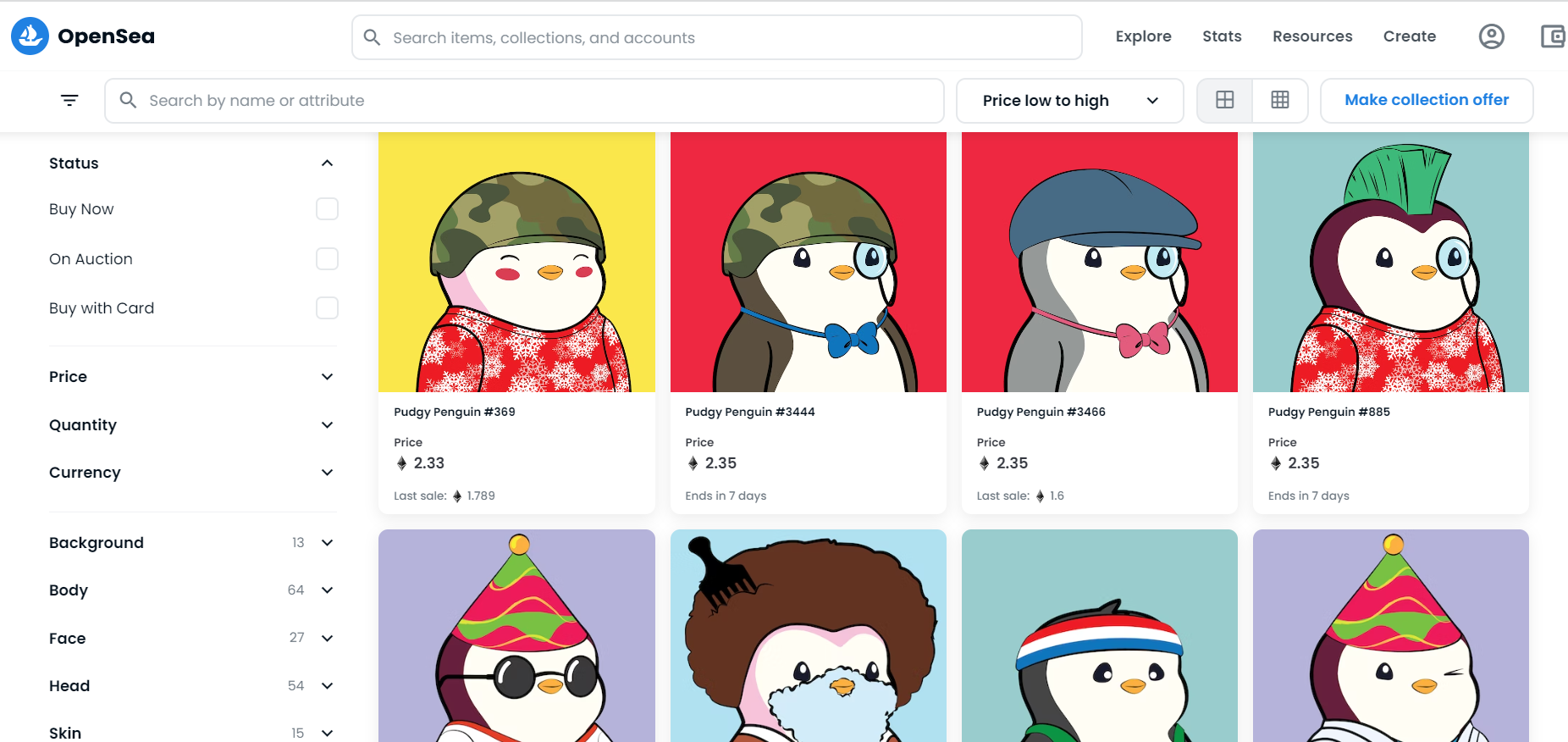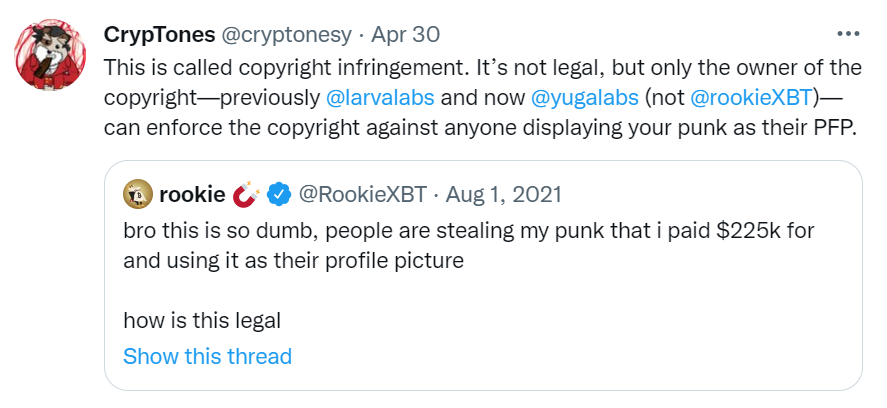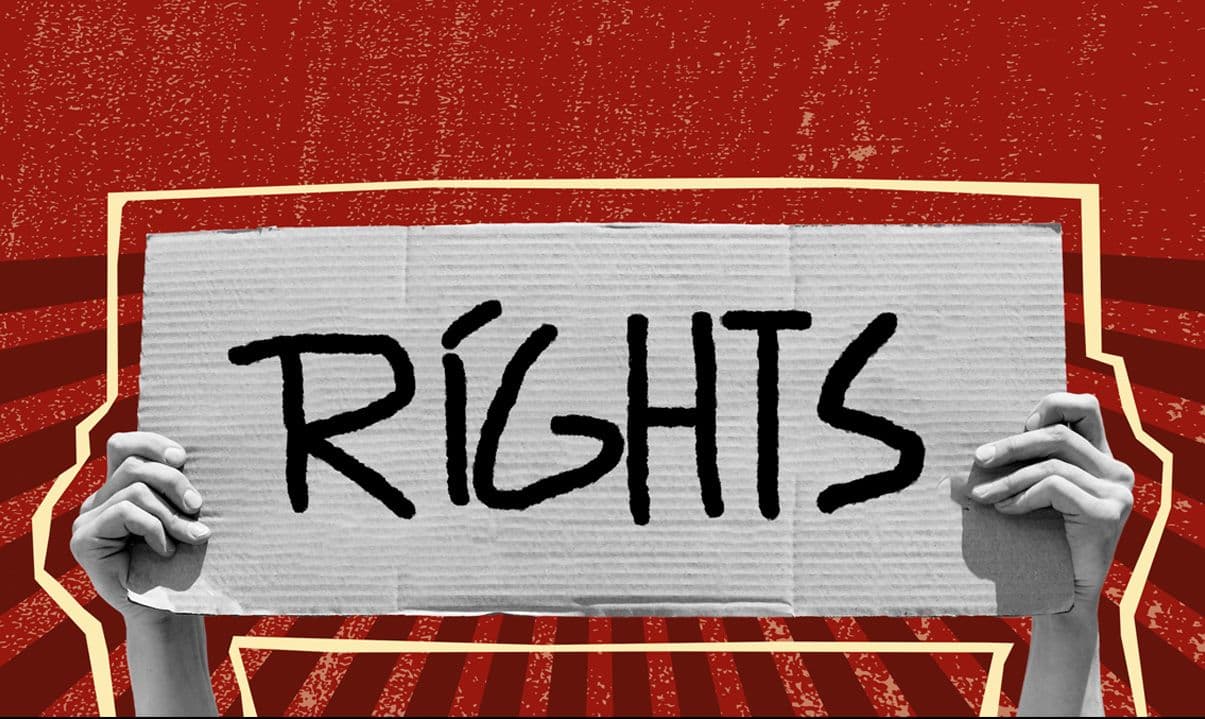NFTs are fast taking over the digital space. They first came into the spotlight when Beeple sold a digital collage for a whopping $69 million. Since then, NFTs have exploded in popularity. Everyone, from the famous rapper Eminem to the most recognizable beverage brand Coca-Cola, is dabbling with them.
But what exactly does someone actually get when minting an NFT, and what legal rights do they have? Let’s find out!
Your Rights When You Buy an NFT

Pudgy Penguins NFTs on OpenSea
NFT copyright is a grey area. Different NFT projects have different ownership rights and there’s no single effective protocol. Essentially, you receive ownership, but not the copyright. For example, if you buy an expensive painting, the copyright still belongs to the creator, and not you. Many countries have strong copyright laws, which acknowledge an artwork as “the author’s own intellectual creation”. This means they own the IP (intellectual property) rights to their work and are free to do what they want with it.

Image source
Ownership rights aren’t always clearly mentioned on popular websites like OpenSea and Rarible. Sotheby’s and artist Kevin McCoy got sued over ownership rights of the first-ever NFT, ‘Quantum’, that they sold in June 2021. It was claimed to have been originally minted in 2014 and the case is still ongoing.
So whenever you’re in confusion, you should always check the terms and conditions published by the project creator to fully understand your rights. A great example of this would be the NBA’s Top Shot NFTs, which clearly states that buyers get limited personal and non-commercial licenses only.
Here’s what you can legally do with your NFTs:
- Share them for personal use, for eg, uploading them as Twitter profile pictures
- Trade or sell them on NFT platforms
- Use them as a speculative investment asset
What you cannot do:
- Adapt or reproduce the work
- Modify it or use it for commercial purposes (unless specified in the contract).
Things to be Aware of Before Investing in NFT Assets
NFT trading is so new that rules and regulations must still be made.
If someone has done unauthorized minting of your NFT, there are two legal options that you can choose from: infringement of the reproduction right and infringement of the communication right.
Infringement of the reproduction right is simply halting the reproduction and copying of your NFT asset. Infringement of the communication right incorporates halting the communication of copyright works to a new set of people or audience.
Trademark infringement happens when a third party mints an NFT linked to your asset without your permission. And if that person advertises or offers to sell using your name, you can take legal action for trademark infringement.
Final Take
Always read the fine print before investing in NFT assets. They are also liable to taxes, so consult legal counsel before making a big transaction.


